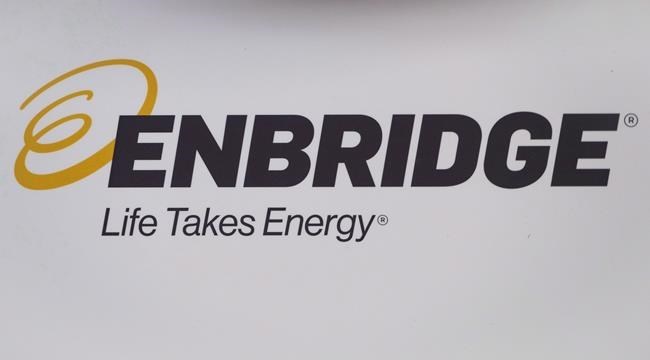CALGARY — Enbridge Inc.'s proposal to build a major carbon storage hub in Alberta remains on the table, the company said Friday, in spite of Capital Power's recent decision to shelve its own $2.4-billion project associated with the plan.
Enbridge executive vice-president Colin Gruending said the move by Capital Power to cancel a high-profile CCUS project proposed for its Genesee natural gas-fired power near Edmonton is "disappointing."
But he added another proposed carbon capture project in the area, at Heidelberg Materials' cement plant, remains in the works and keeps Enbridge's own proposed storage hub alive.
"That (Heidelberg) project has garnered some more financial support, and we'll be working with them to consider FID (final investment decision) later this year," Gruending said told a conference call with analysts to discuss the Enbridge's latest financial results.
"So the Wabamun Open Access Hub will generally continue."
CCUS — or carbon capture, utilization and storage — is a technology that traps harmful emissions from industrial processes and stores them deep underground to prevent them from entering the atmosphere.
Pipeline company Enbridge and electricity generator Capital Power agreed in 2021 to jointly evaluate CCUS solutions in Alberta. Capital Power had proposed to build a carbon capture facility at its Genesee plant, while Enbridge would build the storage hub.
But, Capital Power said last week that while it believes its Genesee carbon capture project is technically viable, it concluded the economics don't work.
Enbridge has already received permission from the government of Alberta to develop the underground hub, dubbed the Wabamun Open Access Hub.
The company's plan is for the hub to be scalable to meet the carbon storage needs of multiple industrial emitters in the area, making it potentially one of the largest underground CCUS hubs in the world.
The Heidelberg Materials CCUS project, which would connect to the Wabamun hub, is in the most advanced planning stages of any potential carbon capture project in the area.
It aims to capture one million tonnes of carbon emissions annually, making the Edmonton-area plant the world's first net-zero cement facility.
But Capital Power's project, which was to capture three million tonnes of carbon dioxide a year, would have been a key part of Enbridge's plan.
Enbridge noted that Capital Power’s decision had no material impact to Enbridge's financial position or growth projections, nor was it characterized as a secured project.
Gruending said Enbridge remains strongly interested in growing a carbon capture, sequestration and transportation business.
But Enbridge CEO Greg Ebel said only the most competitive CCUS projects will go ahead, and tax incentives in the U.S. remain more attractive than what is on offer for carbon capture proponents in Canada.
"So we're real careful with how we deal with this," Ebel said.
"I think, that like a lot of other things, there'll probably be fewer of these (final projects) than obviously the number of proposals that are out there. We're going to do this really disciplined, and it sounds like they (Capital Power) are as well."
Capital Power's decision comes in spite of the fact the Alberta government is promising to cover up to 12 per cent of the costs of CCUS projects and the federal government as much as half through a new tax credit, which has yet to be legislated.
But many companies remain concerned that the existing federal carbon pricing system could be cancelled by future governments, a concern which would impact the financial feasibility of emissions-reducing investments like CCUS.
Ottawa is trying to address that uncertainty by offering so-called "carbon contracts for difference," which reduce the risk for businesses investing in clean technologies by guaranteeing the price of carbon for a fixed period of time.
But most companies proposing CCUS projects in Canada have not yet successfully negotiated a satisfactory contract for difference with the Canada Growth Fund.
Enbridge reported Friday its first-quarter profit fell compared with a year ago as it recorded a non-cash, net unrealized derivative fair value loss as well as costs related to job cuts announced in February.
On an adjusted basis, the company reported earnings of $2.0 billion or $0.92 per common share, an eight per cent increase from the previous year's quarter.
Analysts on average had expected a profit of 81 cents per share for the quarter, according to LSEG Data & Analytics.
In a note to clients, TD Cowen analyst Linda Ezergailis said Enbridge's strong results demonstrate the company is solidly positioned to deliver energy in a growing market.
"In our view, ENB's scale, diversification and stability, resilient business model, long-life assets, and ability to pivot to meet continued industry changes, including a transition to a lower-carbon future, should warrant a premium valuation," she said.
This report by The Canadian Press was first published May 10, 2024.
Companies in this story: (TSX:ENB)
Amanda Stephenson, The Canadian Press



